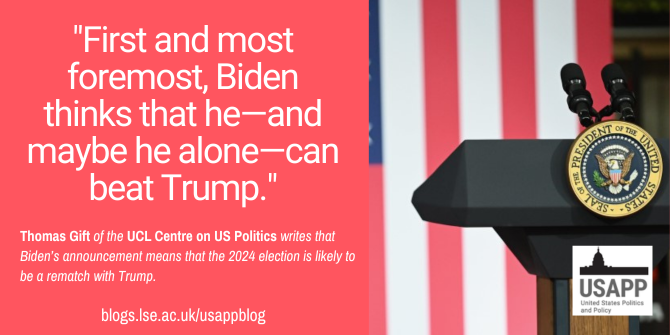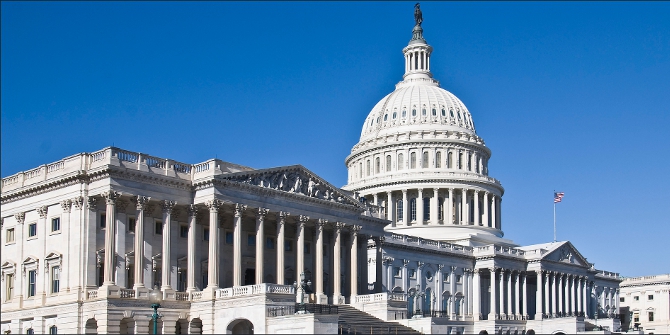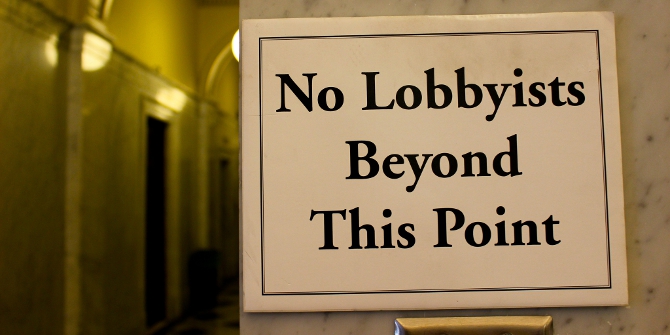 Earlier this week, Joe Biden officially threw his hat in the ring for reelection as US president in 2024. In this Q&A, Thomas Gift discusses how Americans are reacting to the news, what drove Biden’s decision, and what a potential Biden vs. Trump rematch might mean next year.
Earlier this week, Joe Biden officially threw his hat in the ring for reelection as US president in 2024. In this Q&A, Thomas Gift discusses how Americans are reacting to the news, what drove Biden’s decision, and what a potential Biden vs. Trump rematch might mean next year.
Is the 2024 election looking like a rematch of 2020? What do voters make of that choice?
We often hear about how polarized the United States is—and that’s true. But the one thing that most Americans can agree on is that they aren’t thrilled about a Biden-Trump rematch. In fact, a recent YouGov poll found that a plurality of Americans—almost 40 percent—said they felt “exhaustion” at the prospect of another campaign season with these two candidates. So that’s the irony. Most voters don’t want a 2020 redux. And yet, the country seems to be heading toward exactly that outcome. Biden doesn’t face a serious primary challenger, despite many in his party wishing he’d pass the baton to someone younger. Trump still has more of a battle in front of him to earn the Republican nomination. But he’s clearly the front runner and has gotten a big boost in the polls of late, including after his recent indictment in New York. He now leads his closest competitor, Florida Governor Ron DeSantis, by double digits in most polling. In short, 2024 looks like a choice between one president and one former president, both of whose approvals are under water.
How does Biden’s age factor into voter opinions?
To say that’s there’s a lack of enthusiasm for Biden’s reelection bid is an understatement. A new poll by NBC News found that 70 percent of Americans don’t think that Biden should try for the White House again. That includes a slight majority of Democrats. A big hang up for many voters is, of course, Biden age. He’s 80 now, and if he completed a second term, that would put him at 86. Compare that to the average age of a Senator (64) or House member (58), where legislators aren’t spring chickens, and Biden’s still an outlier. It used to be almost off limits to discuss concerns about Biden’s cognitive and physical acuity. Recently, though, even the New York Times editorial board has raised questions about it. Fair or unfair, Biden’s age matters. And it’s not just about fitness for office. It’s about whether Biden is in touch with the current moment and generation. That said, Republicans need be careful about relying too much on playing the age card. In 2020, Biden wasn’t exactly a picture of youth either, and voters didn’t seem to hold it against him.

“International Union of Operating Enginee” (CC BY 2.0) by MDGovpics
Is Biden’s age then the main barrier that stands in the way of a second term?
There’s an emergent narrative that the main concern that Americans have with voting for Biden is his age. But the reality is that there are plenty of other reasons why voters might be reluctant to cast their ballot for Biden. These have little to do with the fact that Biden’s 80 and everything to do with his record. Inflation, despite plateauing, remains stubbornly high. There’s been a huge surge of undocumented immigration at the US-Mexico border. Biden has been pulled to his left on large spending bills, which have further ballooned the deficit. He’s currently facing a Justice Department probe over his alleged mishandling of classified documents. Some critics also think that Biden hasn’t pushed back sufficiently against progressive demands to play identity politics. That’s all on top of the gift that keeps on giving for Republicans: Hunter Biden’s notorious laptop. Of course, some might say that this list seems quaint compared to Trump’s baggage. So Biden’s line might continue to be: “Don’t compare me to the Almighty. Compare me to the alternative.”
Why do you think Biden ultimately decided to run again?
First and most foremost, Biden thinks that he—and maybe he alone—can beat Trump. As discouraging as some of his own favorabilities are, at least he proved he could defeat Trump the last election. So, when it comes to key battleground states—like Pennsylvania, Georgia, Michigan, Wisconsin, and others—Biden is betting that a large fraction of swing voters will turn out for him again, even if some will hold their noses while doing it. Biden also had to be thinking about what bowing out would mean for his party. There’s no clear heir apparent to Biden, so if he were replaced, Democrats would have to weigh the alternatives. A messy nomination fight would open up another 2020-like melee between moderates and progressives. That could get ugly. But in the end, probably the biggest reason Biden is running again is the most obvious: power. When you occupy the most influential office in the world, it’s hard to give that up. As one commentator recently suggested, to think Biden would do otherwise was always more than a bit naive.
- These remarks are based in part on an interview by Thomas Gift for BBC World News on April 25, 2023.
- Please read our comments policy before commenting.
- Note: This article gives the views of the author, and not the position of USAPP – American Politics and Policy, nor the London School of Economics.
- Shortened URL for this post: https://bit.ly/3NimJqh






